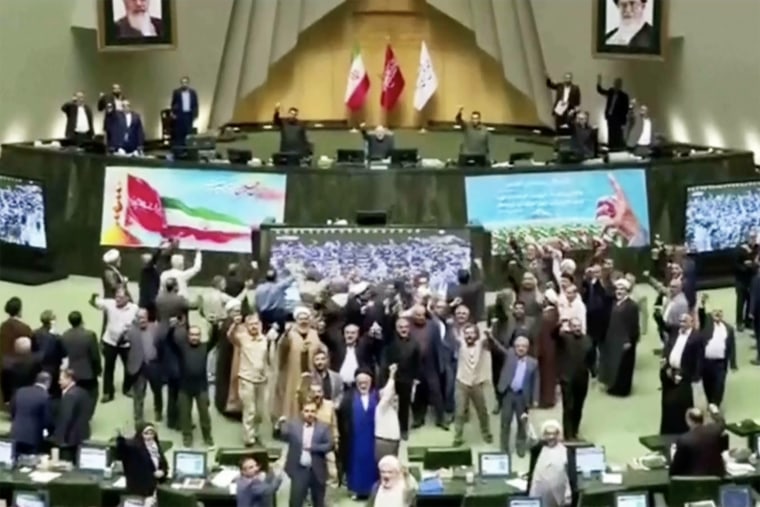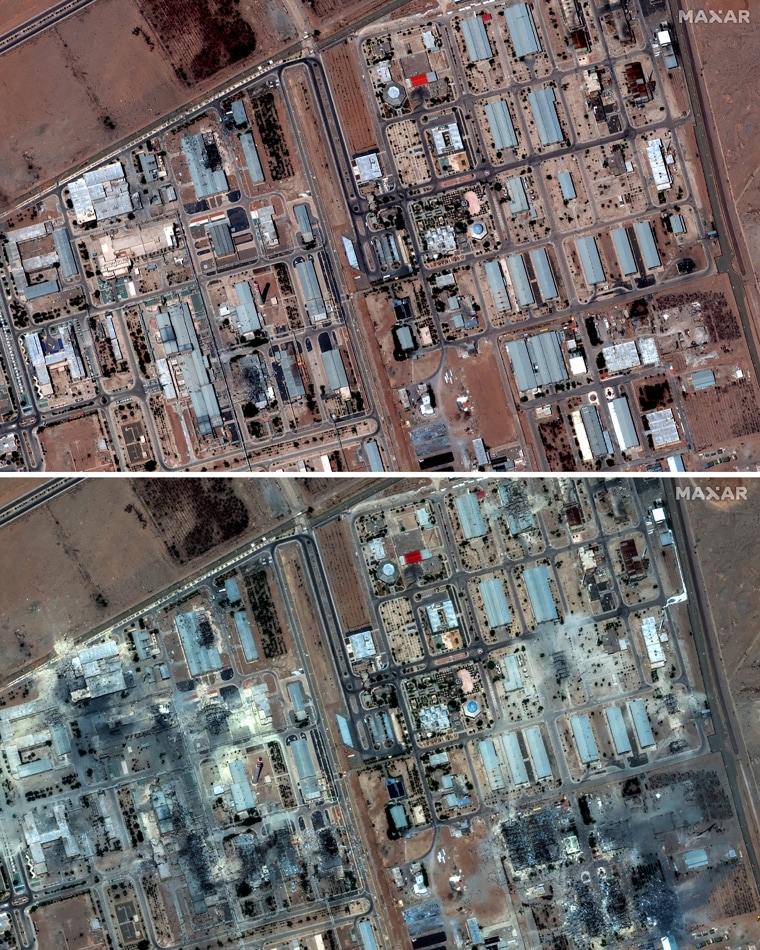Iranian lawmakers voted almost unanimously on Wednesday to suspend all cooperation with the International Atomic Energy Agency, the United Nations’ nuclear watchdog. They followed the vote with chants of “death to America” and “death to Israel”
If approved by Iran’s powerful Guardian Council, Wednesday’s legislation to stop working with the IAEA will make it harder to determine the damage from Israeli and American strikes, or monitor the enrichment and transportation of Iran’s existing uranium supplies.
The vote came as Iran’s supreme leader, Ayatollah Ali Khamenei, made his first comments after eight days during which he has not been seen and many top military and nuclear officials were assassinated. Khamenei stated that his nation had achieved victory over Israel — something not supported by recent events.
Iran’s nuclear facilities have been “badly damaged, that’s for sure,” the country’s Foreign Ministry spokesman, Esmail Baghae, admitted Wednesday in an interview with Al Jazeera.
Iran’s parliament voted to suspend IAEA cooperation with only one abstention among the 223 lawmakers and none voting against it. “Iran’s peaceful nuclear program will continue with greater speed,” Speaker Mohammad Bagher Qalibaf said afterwards.
The bill “is a clear response to the illegal attacks against our country,” Baghaei said according to the state-run Nour News.
It would mean IAEA inspectors “will not be allowed entry into the country unless the security of nuclear sites and the peaceful nature of Iran’s nuclear activities are guaranteed,” he said. And any inspections would also be “subject to approval by the Supreme National Security Council,” he added.

It would thwart efforts by IAEA Director Rafael Grossi, who said at a news conference in Vienna on Wednesday that gaining access to Iran’s nuclear facilities was his “number-one priority.”
He has previously been deeply critical of the Israeli and American strikes, saying “nuclear facilities should never be attacked due to the very real risk of a serious radiological accident.”
Sifting through these damaged facilities is potentially very dangerous for his investigators, he said in Vienna.
“Going back to places that have been shelled is not like going in a normal sort of inspection,” he said. “There is rubble. There could be unexploded ordinance.”
The extent of this damage is still being debated within the U.S. and internationally. The CIA has cited credible intelligence that Iran’s nuclear program was “severely damaged.” While a Defense Intelligence Agency initial assessment leaked Tuesday found it may have only been set back several months, less than claimed by President Donald Trump.

Iran says it is not trying to build a nuclear weapon, and it had been complying with the landmark 2015 nuclear deal, which most experts said was successful in limiting its program, until that was effectively axed by Trump in 2018.
After that, Iran began enriching uranium to much higher grades, more than needed for energy and approaching the potency required for a bomb, the IAEA said.
Grossi also called it “very regrettable” that Iran is reportedly considering pulling out of the Nuclear Non-Proliferation Treaty.
“I hope this is not the case,” Grossi said of Iran’s potential withdrawal. “I don’t think this would help anybody, starting with Iran,” he said. “This would lead to isolation, all sorts of problems.”
This 1970 international agreement says that any signatory is barred from developing a nuclear weapon and must be subject to IAEA inspections. Iran, which signed the deal in 1968, says it does not have nuclear weapons; Israel, which is estimated to have around 90 warheads, has never signed the pact.
Iran hardliners in Washington and elsewhere have been pushing to impose a “zero enrichment” ban on Iran — meaning it would be prevented even from using enriched uranium for nuclear power. Iranian officials point to these arguments as reasons why the country should renege.
“If we are to remain a member of this treaty, we cannot accept only its obligations while being deprived of the rights it guarantees,” foreign ministry spokesman Baghaei said Wednesday. “These rights are clearly defined: the right to peaceful nuclear energy for non-military purposes.”
Meanwhile, Iranian President Masoud Pezeshkian held a call with his Egyptian counterpart Abdel Fattah el-Sisi. “Iran is ready to cooperate in enhancing regional security and strengthening peace and stability,” Pezeshkia said, according to state media. “We support the establishment of a region free of nuclear weapons and even weapons of mass destruction.”
